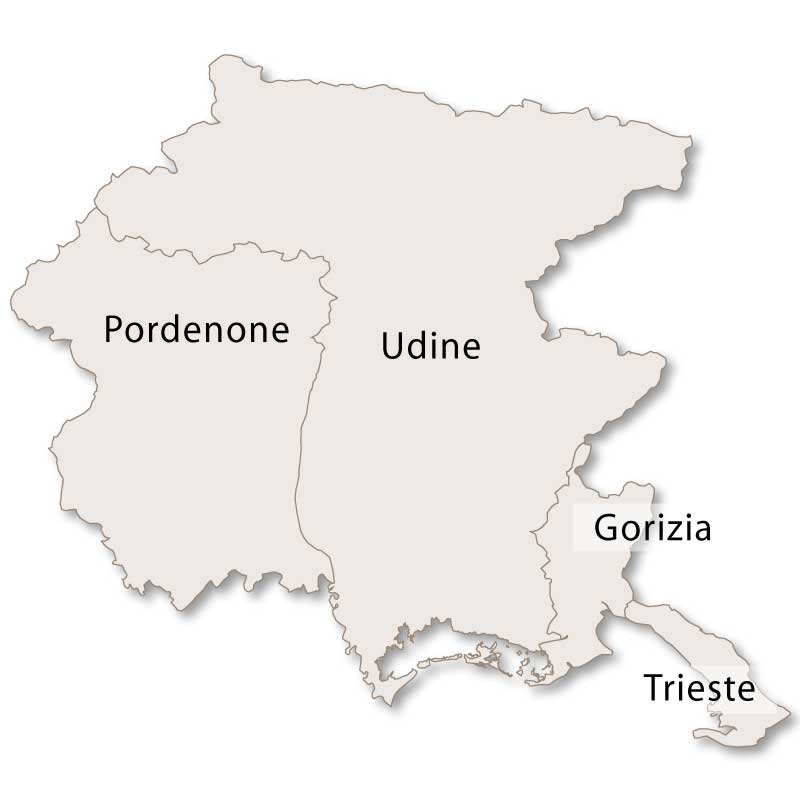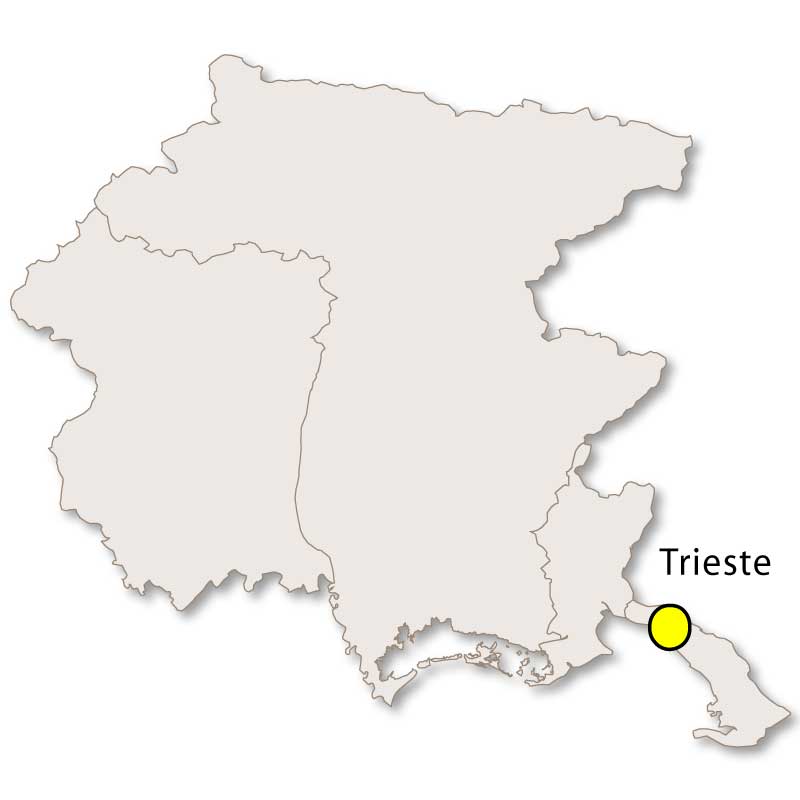
Gorizia is a captivating city located in Italy’s northeastern Friuli Venezia Giulia region, right on the border with Slovenia. Known as the "City of Two Worlds," Gorizia combines É«ÖĐÉ« and Slavic influences, offering visitors a unique blend of cultures, history, and traditions. This picturesque city, with its rich heritage and natural beauty, is often overlooked by tourists but serves as a perfect destination for history buffs, food lovers, and those looking to immerse themselves in a tranquil yet culturally vibrant setting.
Gorizia has a history that spans centuries, deeply intertwined with its strategic position at the crossroads of major European civilizations. First mentioned in 1001 AD, the city grew under the Counts of Gorizia and later became part of the Habsburg Empire in the 16th century. During World War I, it was a major battleground, witnessing fierce fighting during the Isonzo Campaigns. After World War II, Gorizia found itself split between Italy and Yugoslavia, with the neighboring Slovenian city of Nova Gorica emerging across the border. Despite this division, Gorizia has retained its charm and historical significance as a unifying bridge between East and West.
Perched on a hill overlooking the city, Gorizia Castle is a magnificent medieval fortress that dates back to the 11th century. Its well-preserved walls, towers, and inner courtyards offer a glimpse into the city's medieval past. Today, the castle houses a museum showcasing weapons, costumes, and artifacts from the Middle Ages. Visitors can enjoy panoramic views of the city and surrounding countryside from its ramparts.
These two squares form the heart of Gorizia’s old town. Piazza della Vittoria is home to the majestic Cathedral of Saint Hilary and Saint Tatius, while Piazza Sant’Antonio features elegant 19th-century buildings and serves as a hub for local events and markets.
This Baroque masterpiece, built by the Jesuits in the 17th century, is one of Gorizia’s most iconic landmarks. Its grand facade and intricately decorated interior make it a must-visit for art and architecture enthusiasts.
This elegant 16th-century palace once hosted European royalty and nobility. Today, it is a museum featuring historical artifacts, art collections, and period furniture, giving visitors a glimpse into the lives of Gorizia’s aristocracy.
Gorizia is a paradise for food lovers, offering a blend of É«ÖĐÉ« and Slavic flavors. The city's unique position in Friuli Venezia Giulia makes it a hotspot for regional cuisine and wine.
A traditional sweet pastry filled with nuts, raisins, and spices, often served during holidays.
A savory dish made from melted Montasio cheese and potatoes, popular throughout the Friuli region.
A hearty soup of beans, sauerkraut, and pork, reflecting the city's Slavic influences.
Gorizia is part of the renowned Collio wine district, famous for its high-quality white wines, such as Friulano, Ribolla Gialla, and Sauvignon. Visitors can tour local vineyards and wineries, enjoying wine tastings amidst stunning landscapes of rolling hills and vineyards.
Gorizia is alive with cultural events that celebrate its heritage, music, and gastronomy:
This annual food festival brings together cuisines from across Europe and beyond, reflecting Gorizia’s position as a cultural crossroads. Stalls line the streets offering a taste of regional and international delicacies.
A multicultural festival that celebrates the arts through music, dance, and theater. While it extends beyond Gorizia, it highlights the region’s identity as a meeting point of cultures.
During the holiday season, the city transforms into a festive wonderland with markets, lights, and performances, making it an enchanting destination for winter travelers.
Gorizia’s location makes it an excellent base for exploring nearby attractions:
Just across the border, Nova Gorica is Gorizia's twin city. The two cities symbolize the unity between Italy and Slovenia, and visitors can walk across the border seamlessly. Nova Gorica offers casinos, modern architecture, and cultural sites such as Kostanjevica Monastery.
The turquoise waters of the Isonzo River, surrounded by lush green valleys, are perfect for outdoor activities such as hiking, kayaking, and fishing. The area is also dotted with World War I memorials and battlefields.
A short drive from Gorizia, the Collio hills offer breathtaking scenery and some of the best wine-tasting experiences in Italy.
Less than an hour away, the city of Trieste and its stunning coastline are worth a day trip. Explore the Miramare Castle, sip coffee in historic cafes, and enjoy the views of the Adriatic Sea.
Gorizia is more than just a city; it’s a living tapestry of cultures, history, and natural beauty. Whether you’re a history enthusiast exploring its castles and museums, a food lover savoring its culinary delights, or a wine connoisseur touring its vineyards, Gorizia offers something for everyone. Its tranquil atmosphere, combined with its cultural richness, makes it an ideal destination for those seeking a unique and enriching É«ÖĐÉ« experience. Plan your visit to Gorizia today and uncover the charm of this extraordinary city on the border of Italy and Slovenia.




| Ěý | High | Low | Sun | Rain |
| Jan | 15 | 8 | 4 | 63 |
| Feb | 15 | 8 | 4 | 52 |
| Mar | 17 | 9 | 5 | 43 |
| Apr | 19 | 11 | 6 | 31 |
| May | 24 | 15 | 7 | 17 |
| Jun | 28 | 18 | 9 | 9 |
| Jul | 31 | 22 | 10 | 6 |
| Aug | 31 | 22 | 9 | 9 |
| Sep | 28 | 19 | 7 | 29 |
| Oct | 24 | 16 | 6 | 53 |
| Nov | 20 | 12 | 4 | 63 |
| Dec | 17 | 10 | 4 | 59 |
| Table Key: High - Average monthly high temperatures Low - Average monthly low temperatures Sun - Average hours of sunshine per day Rain - Average monthly rainfall in mm |
||||